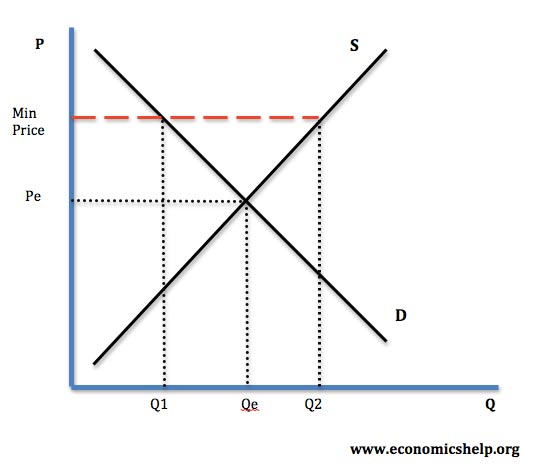Denmark's 'Fat tax' has been repealed but doctors are pushing for a similar tax in the UK backed up with supporting measures.
For doctors in the UK the big problem is fizzy drinks, which are basically water and sugar. They want a tax which will arise prices by 20%.
Of course the PED of these drinks might be quite inelastic, but with so many potential substitutes, from juice to water, we might be pleasantly surprised by the effectiveness of such a tax. (However you can see the dentists getting ready to warn us against the effect of acid in fruit juice.)
The problem of fatty and high calorie foods is that they are 'imperfect information goods' and impose significant costs on the consumer and negative externalities on society who must treat their weight related diseases.
So using a price rise alone isn't enough. It is necessary to improve knowledge and directly intervene, such as banning advertising of unhealthy foods and closing take-aways near schools.
The problem of obesity is the 'new smoking'. The 1970's saw us begin to tackle the evils of smoking, but today the threat to peoples health from eating too much is just as serious.
It will take a broad range of measures to solve this. Some will cause a movement along the demand curve, but most will attempt to move the demand curve to the left.
Showing posts with label Imperfect information goods. Show all posts
Showing posts with label Imperfect information goods. Show all posts
Monday, 18 February 2013
Friday, 4 January 2013
The price is wrong?
Most feel that the real reason is to reduce public expenditure, although it does provide universities with a higher net income and this allows them to spend more on their students education.
The problem is that the higher fees put people off from applying to university. They don't understand the full benefits higher education will give them and so see the expenditure as greater than the benefit. This occurs because education is an imperfect information good.
Education is also referred to as a merit good. The market will provide education, but less than the socially optimal amount.
The BBC reports the decline in UCAS applications for the second year running. You can search the blog to find earlier posts on this issue.
Monday, 14 May 2012
Scotland's 50p per unit minimum alcohol price
Overall then the market consumes more alcohol than is optimal.
Scotland has decided that they will impose a minimum of 50p per unit of alcohol to try to address the problem of people abusing alcohol. This means that a drink that contains two units of alcohol (say a pint of lager) cannot be sold for less than £1. Of course there is no effect if the price is already over a pound.
The effect of this minimum price therefore depends on the current price. Setting a minimum price below the market equilibrium has no effect at all, while setting a price above equilibrium will reduce demand. Of course it can also raise the willingness to supply!
The aim of this policy is to overcome the 'cheap alcohol' available in supermarkets (such as ownbrands) and 'happy hours'. These promote heavier drinking and, as some people know, this is habit forming!
The real question is will it be effective? Alcohol is already heavily taxed, restricted by age limits and only available from licenced premises. There is also a concerted effort to educate people about the true effects of drinking (although this is far less than the effort made on smoking). So far these have failed to eliminate the problem.
The PED of alcohol is likely to be inelastic. Therefore the effect on current drinkers will be small, but maybe it will stop some people from starting to drink. Therefore the pay-off will come in the long-term. What is clear is that dealing with imperfect information goods needs a set of complementary measures which reinforce each other.
Monday, 30 January 2012
University applications down, but is that a sensible response?
Applications are down by 8.7% overall. This is what we would expect from the law of demand, price up, quantity down. And in terms of price elasticity demand that's pretty inelastic as the price change, at least on the surface, is at least 100% and in the 'better' universities 200%.
But should students turn away from a university education? The problem with education is that it is an imperfect information good. Consumers of education will not consider two aspects of university education:
1. The benefit to society generally of having a better educated workforce.
2. The full benefits to themselves of attending university.
Potential university students only consider the benefit they believe they will get and weigh them against the cost of attending university. However students rarely realise at the time how much extra income a degree brings them. Nor do they consider their increased productivity and the benefit to the countries productive capacity.
Overall this means that consumers by less education than is allocatively efficient. This is an argument for subsidising education not raising the costs. Indeed some of us got paid to go to university, but maybe I will stop at that!
Labels:
Elasticity,
Imperfect information goods,
Merit goods
Subscribe to:
Posts (Atom)
